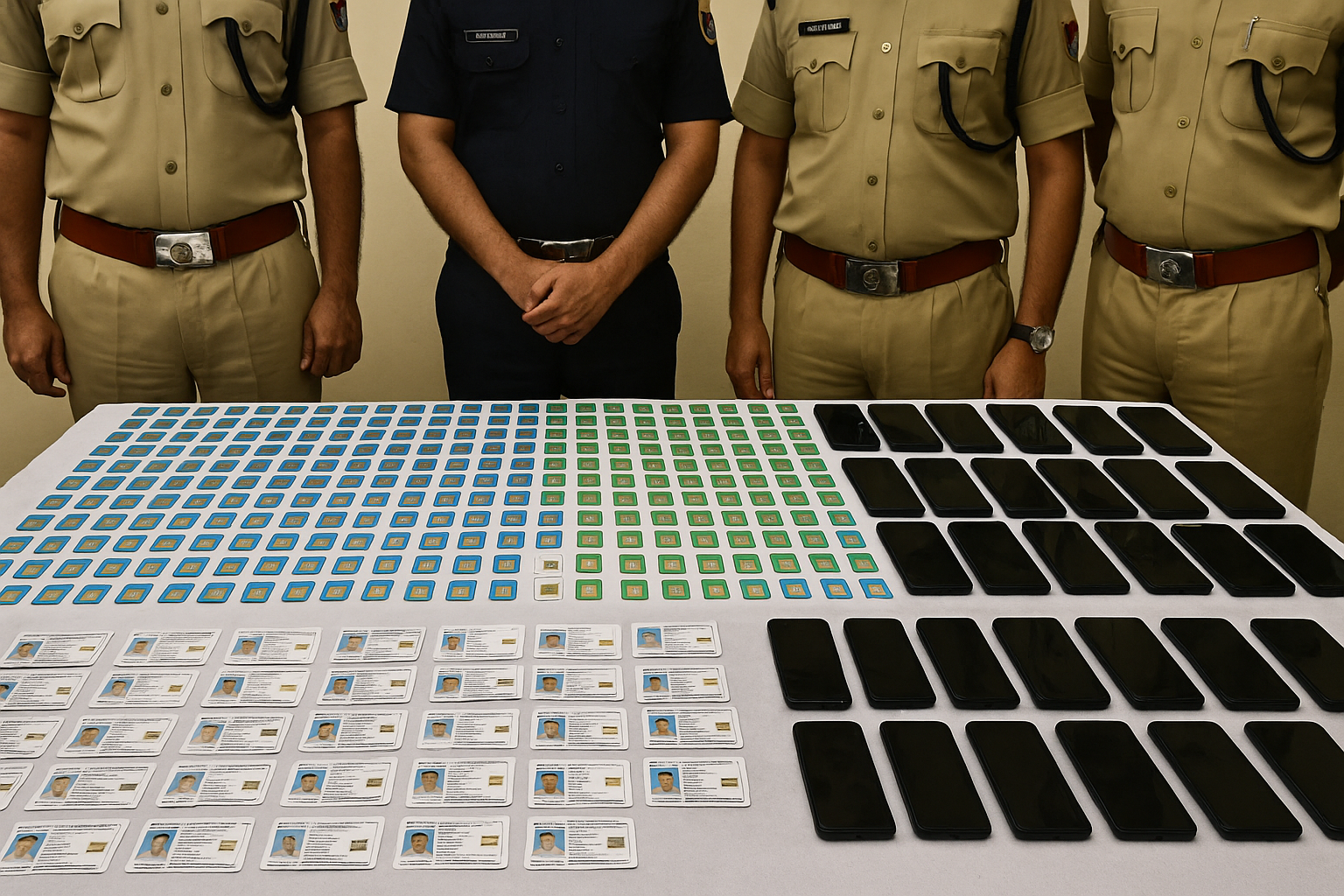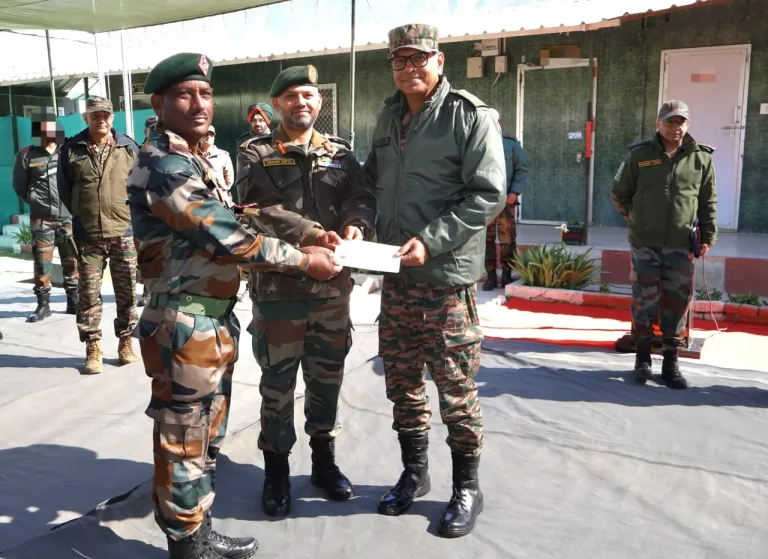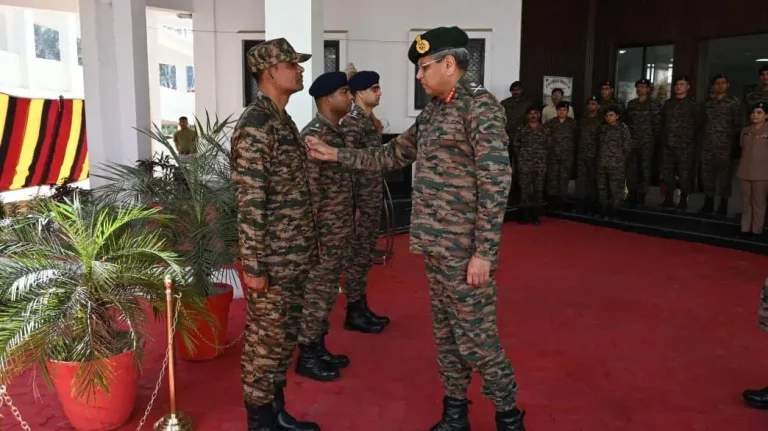In a significant nationwide operation, the Assam Police have successfully dismantled an intricate SIM card racket linked to Pakistan, resulting in the arrest of seven individuals across various regions of India. This operation, dubbed “Operation Ghost SIM,” culminated in the seizure of 948 SIM cards that were allegedly procured through fraudulent means for the purposes of cybercrimes and anti-national activities.
The investigation initiated following a tip-off from the Indian Army’s Gajraj Corps, which operates in Assam. They notified the authorities about unusual activities involving the sharing of One-Time Passwords (OTPs) with suspected operatives in Pakistan. These OTPs were reportedly employed to activate WhatsApp accounts, enabling individuals from Pakistan to use Indian phone numbers, thereby facilitating their operations under the guise of Indian identities. Assam’s Director General of Police (DGP), Harmeet Singh, confirmed the use of some of these accounts to monitor the movements of Indian security forces, posing a significant threat to national security.
The arrested SIM cards were acquired using forged documentation and distributed across multiple states, allowing for covert digital communications that evaded detection. Raids were executed in several locations, including Hyderabad in Telangana, Bharatpur and Alwar in Rajasthan, and Dhubri and Morigaon in Assam.
Notable among those apprehended is Akeek from Bharatpur, who was detained at Guwahati airport, along with Arsad, also from Bharatpur, caught at New Delhi airport. Additional suspects include Mofijul from Dhubri, arrested in Sangareddy, Telangana, and Jakariya from Bilasipara, Assam. The remaining three suspects—Soddik, Mufijul, and Anarul—were captured during the coordinated raids.
Authorities are now delving into the operation’s broader scale and whether a more extensive conspiracy exists. Fourteen further individuals from Assam’s Dhubri district are currently under investigation, with DGP Singh expressing the intent to determine if they were involved in the racket or merely victims of the cybercriminals’ schemes.
This crackdown emerges amidst heightened tensions between India and Pakistan, particularly following a terror attack in Pahalgam on April 22. It reflects a broader initiative to combat cybercrime across India. Since 2024, the Indian government has deactivated over 8 million SIM cards issued using fraudulent documentation, bolstered by AI tools aimed at detecting such anomalies. The Telecom Regulatory Authority of India (TRAI) has also reinforced regulations through the introduction of message traceability mandates and stricter guidelines for spam and telemarketing communications.
The government’s dedicated cybercrime helpline, 1930, has played a vital role in mitigating fraud, helping save over ₹3,500 crore for more than a million potential victims. As digital threats increasingly converge with national security concerns, this operation underscores the pressing need for ongoing vigilance and stringent enforcement measures in protecting India’s telecommunications infrastructure.







